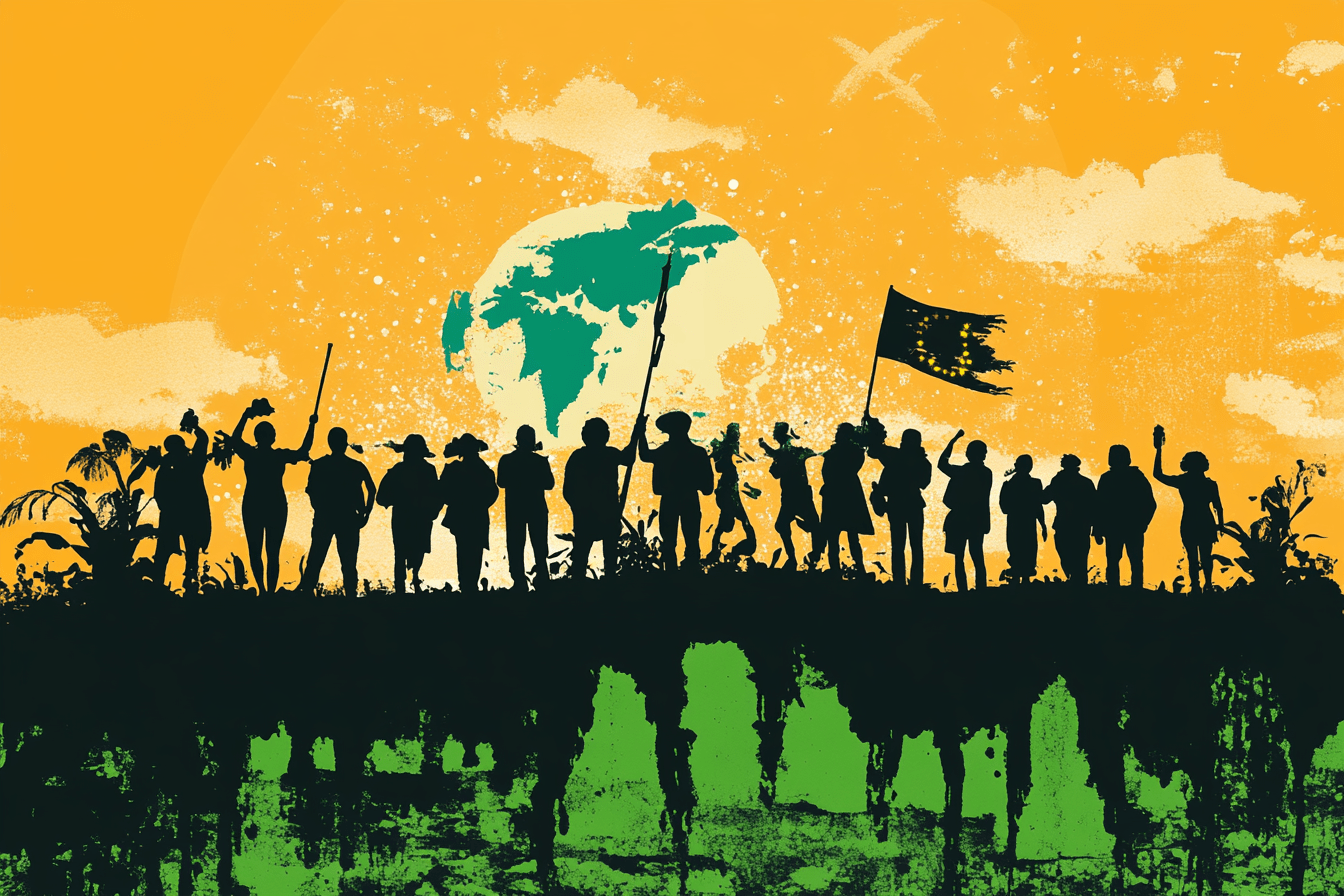Foes’ with Benefits?
The shared opposition of environmentalists and farmers to the EU-Mercosur trade deal reflects concerns about economic liberalization at the expense of ecological and social equity. A commentary by Pietro Galeone, Joseph Christopher Proctor, Romain Svartzman

On December 6th, EU Commission President Ursula von der Leyen announced a trade agreement between the EU and Mercosur countries (Argentina, Brazil, Paraguay, Uruguay).
This ambitious deal, encompassing a market of over 750 million people, aims to eliminate tariffs on 90% of goods traded, bolstering EU industrial exports and Mercosur’s agricultural exports, particularly beef and soy.
Interestingly, opposition to this deal on the EU side has brought together two groups who are traditionally ‘foes’ from a political economy perspective: farmers and environmentalists.
Environmental Concerns
Mercosur’s agricultural dominance, especially in meat and soy production, is closely tied to deforestation. Beyond the irreversible loss of biodiversity at the regional level, deforestation drives CO2 emissions, thereby worsening the climate crisis at the global level. Livestock farming requires extensive land, accounting for about 83% of total agricultural land used globally – including both the space needed for raising cattle and land needed to grow animal feed. While efforts to curb Amazon deforestation have seen undeniable (yet insufficient) progress, other ecosystems located in Mercosur countries like the Cerrado savannah and Gran Chaco region, face increasing deforestation rates. These areas, critical for carbon sequestration and therefore for climate stability, are being sacrificed to agricultural expansion.
Cattle farming also generates significant greenhouse gas (GHG) emissions, with methane (a GHG with a much worse warming potential than CO2, for each ton emitted) from rumen fermentation being a major contributor. Livestock accounts for about 10% of global anthropogenic GHG emissions, intensifying climate concerns. Critics argue the trade deal incentivizes livestock farming, undermining the EU’s Green Deal and climate commitments. Though the agreement includes provisions tied to the Paris Agreement, many fear that their enforcement remains vague and insufficient to counter deforestation trends fueled by EU market access.
Economic Challenges for EU Farmers
Mercosur countries benefit from lower production costs due to weaker environmental and labor standards, threatening EU farmers with cheaper imports. Mercosur nations dominate global soy, maize, and poultry production, raising fears of suppressed EU prices and diminished profitability for domestic producers.
While the deal includes quotas to limit imports, such as 99,000 tonnes of Mercosur beef —representing only 1.6% of EU beef production — farmers argue even minor competition can have significant impacts. Declining EU meat consumption exacerbates this challenge, as quotas take up a larger market share over time. Additionally, tariffs on beef would drop from 20% to 7.5%. French President Emmanuel Macron has criticized the deal, citing unfair competition and insufficient parity in environmental and labor standards. Similar concerns are echoed by Irish and Polish farmers.
EU farmers also highlight potential risks to food security and quality standards. For instance, a recent EU audit found that Brazil cannot guarantee exports free from growth hormones banned in the EU. Such discrepancies fuel skepticism about the trade agreement’s alignment with European health and environmental norms.
Meanwhile, Mercosur countries face risks of over-reliance on volatile agricultural exports, potentially exacerbating financial instability. The deal could deepen existing challenges, such as capital outflows during commodity price downturns, while hindering industrial diversification. Critics warn this agreement may lock Mercosur economies into unsustainable growth models reliant on environmental degradation.
An Unlikely Alliance
The shared opposition of environmentalists and farmers reflects concerns about economic liberalization at the expense of ecological and social equity. Environmentalists argue the deal prioritizes corporate profits over ecological integrity, jeopardizing global climate goals.
Farmers, on the other hand, emphasize the need for fair competition and support for local agriculture. While their motivations differ, both groups advocate for reevaluating the agreement to align with broader EU commitments to sustainability and equity.
To overcome these tensions between trade liberalization and sustainable development, the EU could reform its Common Agricultural Policy (CAP) to promote ecological farming and align trade policies with environmental values. Such reforms might include reducing pesticide use, encouraging plant-based diets, and supporting farmers’ transitions to sustainable practices. By addressing farmers’ concerns, the EU could build a more resilient agricultural sector while maintaining its environmental commitments.
This approach could be accompanied by more strategic and equitable trade deals with countries like those in the Mercosur, for instance by focusing on joint partnerships to access the critical minerals present in these countries (e.g. copper and lithium) while co-developing products such as electric vehicles.
As the global climate crisis deepens and geoconomic fragmentation worsens, trade agreements must prioritize ecological and social sustainability, while promoting a different approach to globalization. The EU could live up to its values by paving the way toward such a radically different approach to trade agreements.
*This is a commentary version of a longer piece by the same title, published in the ECO Magazine (rivistaeco.com). For precise statistics and citations please refer to that article
IEP@BU does not express opinions of its own. The opinions expressed in this publication are those of the authors. Any errors or omissions are the responsibility of the authors.


